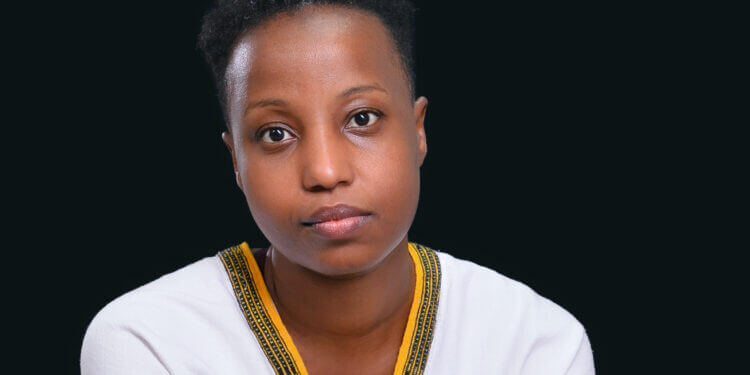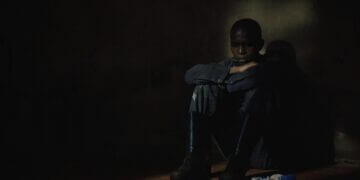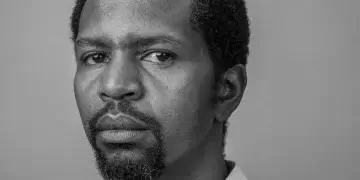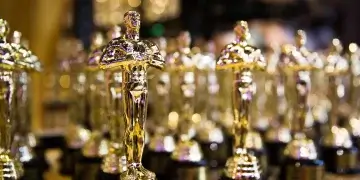Shimoni writer and director Angela Wamai is no stranger to the world of film. Her journey began at St. George’s Girls High School where she realised that storytelling was something she was greatly interested in.
“One day, while seated in the school field, I knew I wanted to become a storyteller,” Wamai says. “I could read novels, and during art classes, when the teacher is not present, I would narrate the stories to my classmates. However, in such moments I just did not know how to make it a career. It did not even occur to me that it was possible. Of course, you’d watch a film and see only white people on screen and you think ‘it can never be me’. It was still such a foreign concept.”
Fast forward years later, her dream started to become a reality. She studied mass communication at Daystar University, interned at KBC radio, worked as script supervisor for Makutano Junction for six seasons and produced and directed KTN’s show Art Scene, all culminating to tons of experience.
To perfect her skills even further, Wamai studied directing and editing at a film school in Cuba, and has since edited top productions like South Sudan’s critically-acclaimed documentary No Simple Way Home, and New Moon and I Had to Bury Cucu by Philippa Hermann. Finally, Wamai was ready to tell her own story – Shimoni – as the film’s sole writer, director and editor.
The process of writing Shimoni took nine years to complete, mainly because Wamai was still looking for funding as well. She became more serious with the script in late 2017, early 2018. By 2019, she had worked with a screenwriting mentor for about six months.
The idea for the film was birthed in August 2014 when Wamai was watching an image of a lady holding a piece of burning paper and not letting go. This sparked her curiosity about the things human are not willing to let go, such as secrets and grudges. “What was fascinating to me, is the idea of grudges and hurt, and the people who hurt us. How do we begin to forgive and let them go? I guess it is in seeing them as human beings and humanize them,” Wamai explains.
The story of Shimoni centres on Geoffrey (Justin Mirichii), a teacher who returns home after a seven-year prison sentence only to find out that freedom can be a nightmare.
As a filmmaker, touching on taboo topics such as sexual abuse on male victims requires an immense amount of truth, research and vulnerability. Wamai understood the delicacy that the content demanded of her. She did immense research by watching numerous documentaries of male survivors of sexual abuse, and even holding conversations with some of them because creating the world of Shimoni in the most relatable form was crucial in bringing out the realistic non-fiction texture of the main character.
“Growing up with two brothers, men have been in my line of focus. And the way they deal with things, I have always found interesting,” says Wamai. “Why Geoffrey (Shimoni’s protagonist) feels very non-fictional was mainly from trying to understand him as a person who has gone through this hurt and getting to a point of empathising with his pain. Understanding his journey made it very realistic for me since to some degree, we all carry a certain level of pain and hurt.”
Shimoni carries pure rawness and heaviness, and Wamai selectively chose to create a quiet world for the story, silent and minimal even in its music to make the audience pay attention and hear and feel everything the character is going through and connect with him.
The role of each character in the film is very clear from the onset, and as a female director telling a male story, it was important for Wamai that her female characters – Martha (Muthoni Gathecha) and Beatrice (Vivian Wambui) – each own their place instead of being at the service of Geoffrey’s journey.
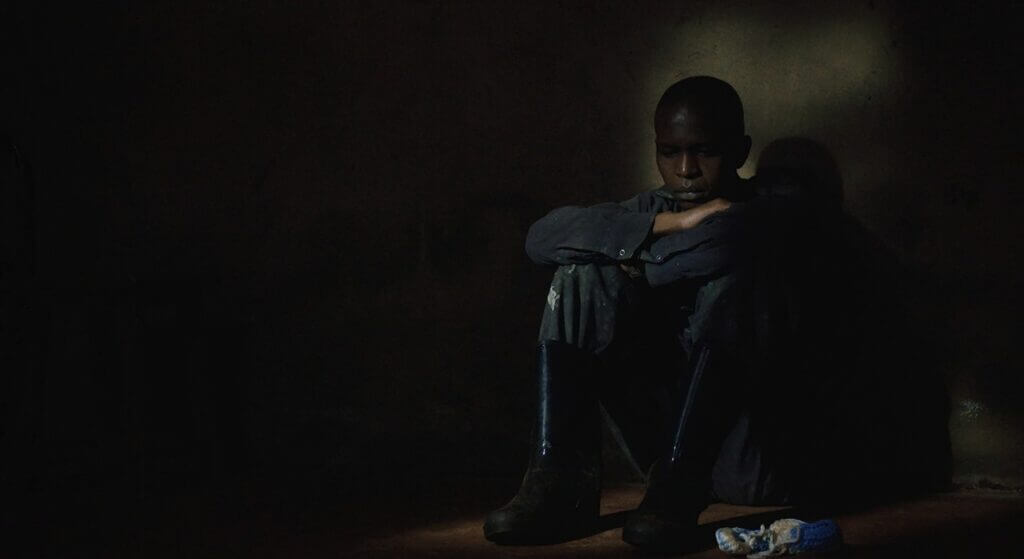
For instance, Beatrice also carries her own secret and is part of the village that is imposing rules on Geoffrey and punishing him for his secrets, and with that immediately connects with him.
With Martha, Wamai was able to create a strong female character that is sure of herself and vocal with her opinion to rally up people. “It’s very interesting how the west has defined feminism, but within African cinema, the filmmakers have managed to define the African version of feminist women who are sure of themselves, who are affirmative and strong. Like our mothers, grandmothers and great grandmothers,” Wamai says.
Religion plays a huge role in Shimoni, largely borrowing from Wamai’s strong Christian background. In this case, religion is a great catalyst of the silence that exists in communities where evil prevails.
In the story, Sam Psenjen’s Father Jacob is reluctant to be a voice of reason, compassion and cohesiveness once the villagers find out about Geoffrey’s crime even though he knows that Geoffrey is a victim sexual abuse.
“I was interested in investigating the concept of silence; when and why do we keep quiet when an evil deed is done,” says Wamai. “There are many vices done in church and it is full of flaws as an organisation, because at the end of the day, as Christians, we are humans and are very susceptible to failure. That is why as Christians, we should be able to critic ourselves and keep thinking about the things happening around us. Because when we start asking questions. it means we are confronting things that are not working and that is why we cannot be quiet.”
Shimoni’s tagline “I wasn’t always a basket” is a repetitive analogy song derived from a folklore ogre story that Wamai was told as a little child. The story goes that there was child who lived next to an ogre and went to steal oranges from the ogre’s farm who catches him. The ogre then grinds him into a basket and whenever he went to the market, he would leave it somewhere and then the basket would start to sing.
“With ogre stories it was always this idea of a child being turned into something they are not, in this case, a basket or in another case, they are taken and put in a hut, simply the deformation of a child from their original form,” explains Wamai. “I found this relevant with the story of Shimoni that touches on child abuse because the abuser takes a child and deforms them, and this song took another layer. Geoffrey, our protagonist, is saying ‘This is not who I was’. He’s a child who was deformed, and it’s the the trauma, carrying shame and pain because of his encounter with the abuser (monster) that changed him. I found the parallels interesting.”
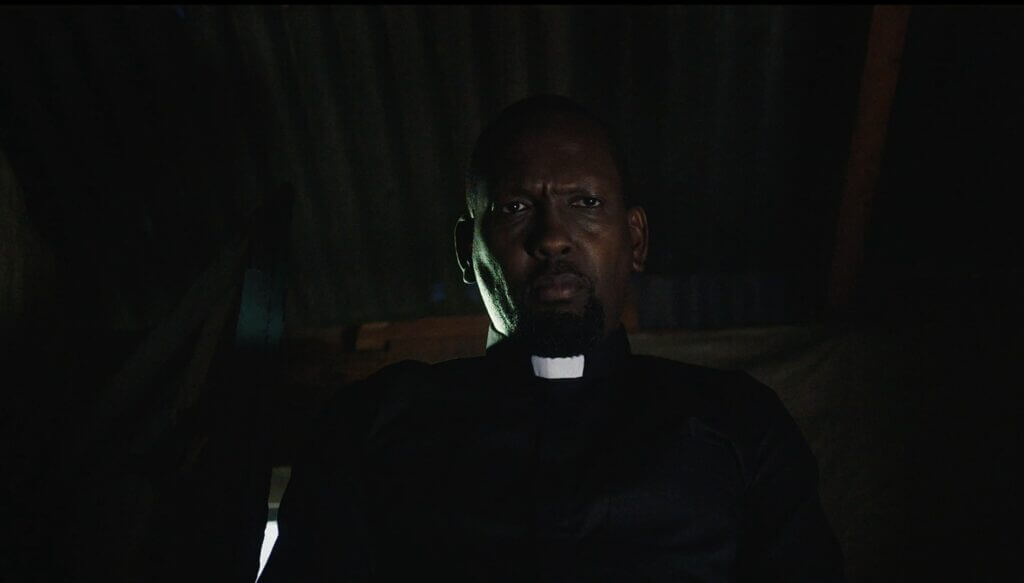
Shimoni is Wamai’s debut feature as a director. The opportunity came by chance. Literally, by chance. After writing the film, it seemed apparent for Wamai to look for a director creatively equipped to take on such a story. “Likarion was supposed to direct but he left me high and dry. I begged and pleaded, please let it be on record,” Wamai says.
Fortunately, the odds worked in her favor, as she found herself taking up the director seat with the guidance of an able professional crew team, making the transition easier for her.
As an editor who has worked with many directors, helming the film came with its benefits in influencing her approach to the craft, especially working with actors.
“There is a female director; I once worked with whom when rehearsing with actors would not just dive into the script but do a bit of role play. I incorporated some of that with my rehearsals just to see the chemistry with the cast,” reveals Wamai. “In addition, a style I am still developing is incorporating is head-hunting for specific cast instead of open call auditions. Also moving forward, as a style, I would love to work with more novice actors, or rather a more balanced ensemble cast, with both established and new actors. It’s an enjoyable feel as a director to know that you are both jumping into something new together, specifically with non- actors.”
In film, like any industry, money and infrastructure are the pillars for growth and ensuring that filmmakers are motivated enough to tell good stories. “We need a lot of government support and legislation, and a lot of monetary infrastructure not just from the funding aspect, but also building more cinemas because all we have are private cinemas which means inaccessibility going by how much they charge,” Wamai says.
Streaming platforms like Netflix, Showmax, Amazon Prime Video and Disney+ are definitely a game changer and one can state, arguably, that the African film industry owes so much to them, but Wamai feels that there is still so much artists need to do to protect their interests.
“As filmmakers we have to have a little bit more care and ask the question, ‘Who owns what we are creating?’ At the moment I am not sure who own the IP of half the things I watch on the platforms, and what does that mean for us as African filmmakers about where our history is? What will remain of it if they decide to up and leave or crash?” Wamai ponders.
Enjoyed this article?
To receive the latest updates from Sinema Focus directly to your inbox, subscribe now.


